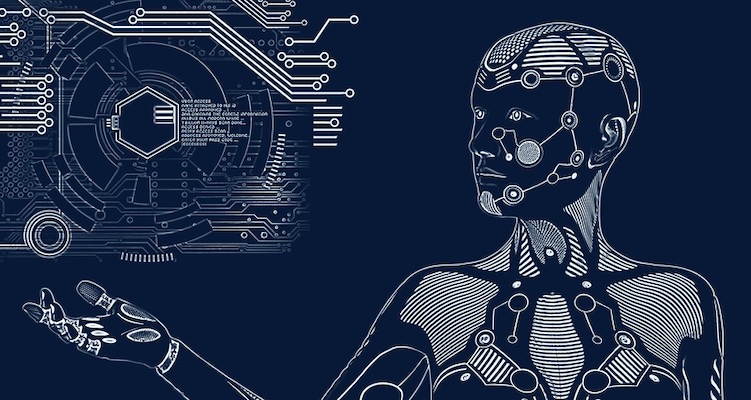Eudemonic and More Utopian: Simon Dubé Discusses Sexbots, Sextech, and Other Sexuality Advancements
“Being positive, we can open ourselves up to all kinds of new possibilities”

Our Future of Sex Expert Series continues with this informative conversation with Simon Dubé, PhD, a Research Fellow at the Kinsey Institute and specialist in artificial companions, human-machine erotic interactions, and space sexology.
He is also one of the guiding lights behind the upcoming International Congress of Love and Sex With Robots at the Université du Québec à Montréal, Canada.
Q: Do you tend to envision a positive or negative future where artificial companions/erobots are concerned?
“That’s a really good question. I tend to give myself an objective of envisioning a positive future for humanity because in my mind I believe we need to set ourselves sextech positive objectives and adopt a sextech positive approach—including our relationship with artificial companions—to know what we are striving for.
“How will that positivity manifest? I’m unsure, not because of the technology itself per se, but what people do with it. So it’s the human component that I’m most worried about but I think having a sextech positive approach doesn’t mean ignoring the risks. It’s actually acknowledging the risks, trying to mitigate them and move towards a positive future.
“I have my doubts because of the incentives the people and the companies behind some of these changes have. I think there’s plenty of well intentioned individuals across the board, including in the industry, but I think we need as a civilization to also set ourselves eudemonic and more utopian objectives.
“We need to set ourselves goals that are not just about creating profit, but are actually in service of creating wellbeing. If we set that as an objective and even almost a regulation, companies and individuals will make even more money and benefit more people. I don’t think those are mutually exclusive.
“We have to keep our optimism, not going in blindly, but at the same time it’s like, by being positive, we can open ourselves up to all kinds of new possibilities.”
Q: In what surprising new ways might human sexuality evolve in the coming years?
“I would definitely say that the future’s going to transform every aspect of our human, intimate and sexual life from our identities to our partners, and the way we meet, connect and maintain relationships.
“Right now what we’re seeing with the emergence of the great advancements in artificial intelligence and robotics and virtual augmented and mixed worlds is a convergence of the technologies and the way they are progressively integrating into every aspect of our life.
“Very soon it’s going to be second nature, the same way it’s second nature right now to use technology to connect, to talk, to have this interview, to meet and maintain a relationship.
“It is going to become ubiquitous to interact with artificial agents and these new digital species across the board. I think the future of our intimacy and sexuality is a pure integration of this: using technology to meet and have sex and maintain intimate relationships, but also have intimacy and sexuality with technologies not just through it.
“And having what I like to call multi agent relationships, having a relationship with both humans and machines and human machines and human enhanced machines and machines that are connected to other humans and all kinds of a blur of virtual mix and non-virtual environments and augmented environments.”
Q: What is sextech’s next big challenge—and how might the industry overcome it?
“My knee jerk response would be, I don’t know. There’s so much to address. I think one of the biggest challenges for sextech in general, that’s pervasive, is the socio-political climate in which it’s operating.
“The fact that sex is always treated as something that’s different from other aspects of human nature, which creates all kinds of problems for the industry, with payment fees, with a constant shifting landscape, rules that are powered by a very conservative force and conservative movements are on the rise on our planet that are in many ways anti-sex.
“I think sextech suffers a lot from that. It doesn’t have the effect that people think it has. Treating it as a fringe or marginalized subject or something to push and get out of the way and control because otherwise chaos will ensue doesn’t help anyone: It just pushes the industry to find alternative routes, or people to find alternative outlets than embracing it fully as an important dimension of human existence.
“Sextech fulfills human needs, preferences and desires. One of the biggest drives of our evolved socio-cultural history is sex and love and intimacy and intimate relationships.
“It’s one of the main, if not the main drivers of human existence. So instead of trying to suppress it or put it in the corner or like in the back or regulate it and treat it very differently while we should actually be embracing it fully.”
Q: How will this year’s Love and Sex With Robots conference be different from previous ones?
“The first thing that’s a major difference is it’s the first in-person event since 2020.
“Virtual was great for accessibility, bringing people together while social distancing. But there’s something to be said about the fact that it doesn’t replace physical, in-person interactions.
“There’s also something special when a group of like-minded folks exchange great ideas about their research, their lived experiences, art, science, policies and technologies and their industries and come together to address big questions like human machine erotic interactions and evolution and how we can make it compatible with human interests. All in a beautiful city like Montreal.
“My hope is to build on what we’ve done previous;y, to use when people can come together to learn and exchange with one another and grow from there–and understand this is a safe, interesting, and insightful place to be each year to talk about sexuality in technology.”
Image Sources: Depositphots, Simon Dube

















